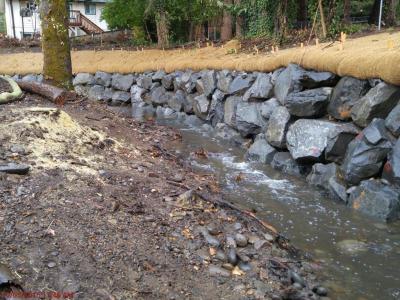City of Corvallis to File Petition Over Statewide Stormwater Regulations
The Corvallis City Council has voted to file a petition for judicial review against the Oregon Department of Environmental Quality, seeking to halt the implementation of a new stormwater permit that is set to go into effect on March 1. The vote came at the Council’s January 22 regular meeting.
City officials say the new National Pollutant Discharge Elimination System Phase II Municipal Storm Sewer System Permit includes regulations that are impossible to achieve, and that the expanded program requirements in the permit will impose significant additional costs to the City. Development in Corvallis would also be greatly impacted, which would adversely affect housing affordability and availability. Failure to comply with the permit would be a violation of the Clean Water Act and would subject the City to enforcement of the act’s provisions, including assessment of penalties from agencies or citizen groups.
At issue is a series of requirements in the new state permit that appear to conflict with federal requirements, which already require that municipalities such as Corvallis must reduce discharge of pollutants to the “maximum extent practicable.” This gives municipalities throughout Oregon the flexibility to adapt their stormwater programs around local factors. Adding the additional, more stringent requirements contained in the new state permit goes well beyond the federal requirements, according to City officials.
The City of Corvallis is dedicated to the protection of stormwater discharge and spends about $1.9 million per year on projects and programs related to its current stormwater permit. Bringing those systems into compliance with the new permit will increase costs by about 40 percent. The City’s compliance efforts will necessitate significant increases to the rates paid by utility customers in the community.
In addition, the new requirements will add significant financial burdens to future developments in Corvallis, including housing. Increased costs related to on-site stormwater retention, for example, appear to be so strict that some undeveloped properties in Corvallis would be rendered undevelopable.
The City of Corvallis, together with other Oregon cities that are pursuing similar legal actions, is seeking to stop the implementation of the new permit and to require DEQ to undertake a substantive rewrite to clarify unclear information and address these significant concerns. The City of Corvallis is committed to improving water quality through enhanced stormwater management practices and looks forward to working with DEQ to improve the proposed permit regulations.
